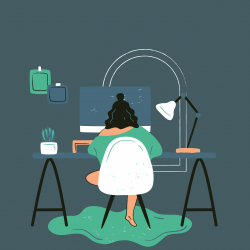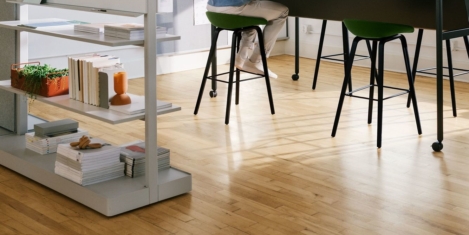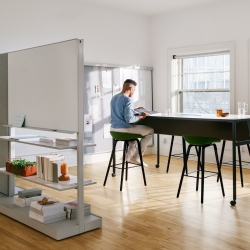To provide the best experiences, we use technologies like cookies to store and/or access device information. Consenting to these technologies will allow us to process data such as browsing behaviour or unique IDs on this site. Not consenting or withdrawing consent, may adversely affect certain features and functions.
The technical storage or access is strictly necessary for the legitimate purpose of enabling the use of a specific service explicitly requested by the subscriber or user, or for the sole purpose of carrying out the transmission of a communication over an electronic communications network.
The technical storage or access is necessary for the legitimate purpose of storing preferences that are not requested by the subscriber or user.
The technical storage or access that is used exclusively for statistical purposes.
The technical storage or access that is used exclusively for anonymous statistical purposes. Without a subpoena, voluntary compliance on the part of your Internet Service Provider, or additional records from a third party, information stored or retrieved for this purpose alone cannot usually be used to identify you.
The technical storage or access is required to create user profiles to send advertising, or to track the user on a website or across several websites for similar marketing purposes.
 A joint letter from 21 leading employers – including several in the FTSE 100 – is calling on employers across the UK to advertise all vacant roles with flexible options by default. The full text is: (more…)
A joint letter from 21 leading employers – including several in the FTSE 100 – is calling on employers across the UK to advertise all vacant roles with flexible options by default. The full text is: (more…)
















 Seven in 10 (70 percent) of UK HR managers now say flexible working could work for their business – claims a new
Seven in 10 (70 percent) of UK HR managers now say flexible working could work for their business – claims a new 
 Hybrid working could save the NHS more than £4 billion per year by giving workers more time to look after themselves and their families, according to a new study by
Hybrid working could save the NHS more than £4 billion per year by giving workers more time to look after themselves and their families, according to a new study by 
 Parents who feel shame about childcare responsibilities eating into their work-time are less productive when they are working than those who do not feel ashamed, according to new research by
Parents who feel shame about childcare responsibilities eating into their work-time are less productive when they are working than those who do not feel ashamed, according to new research by 
 New polling, carried out to mark the start of
New polling, carried out to mark the start of 
 Hybrid working could bring nearly four million people “locked out” from work such as parents, carers and disabled people into the workforce and enable part-time workers to work more hours adding £48.3bn to the UK economy each year, according to a new study by
Hybrid working could bring nearly four million people “locked out” from work such as parents, carers and disabled people into the workforce and enable part-time workers to work more hours adding £48.3bn to the UK economy each year, according to a new study by 







September 12, 2022
The wellbeing of parents should be a greater concern for employers
by Gosia Bowling • Comment, Wellbeing